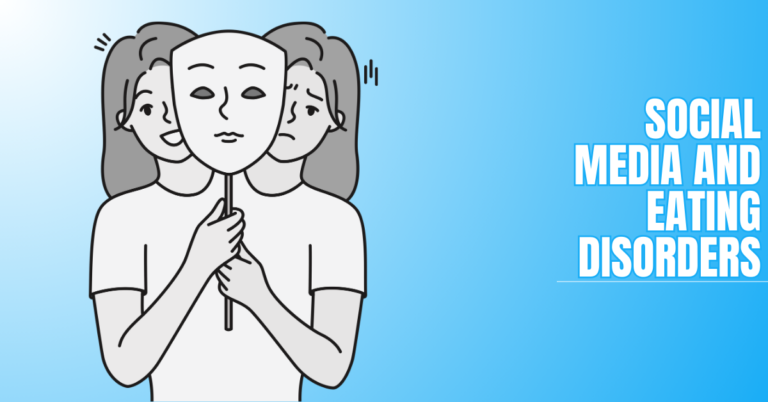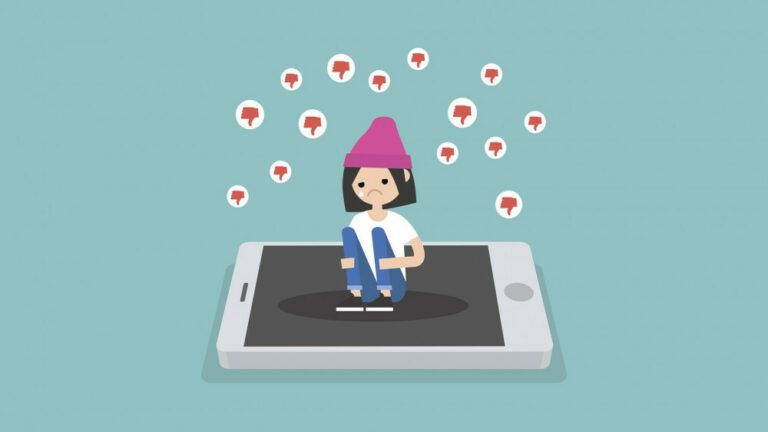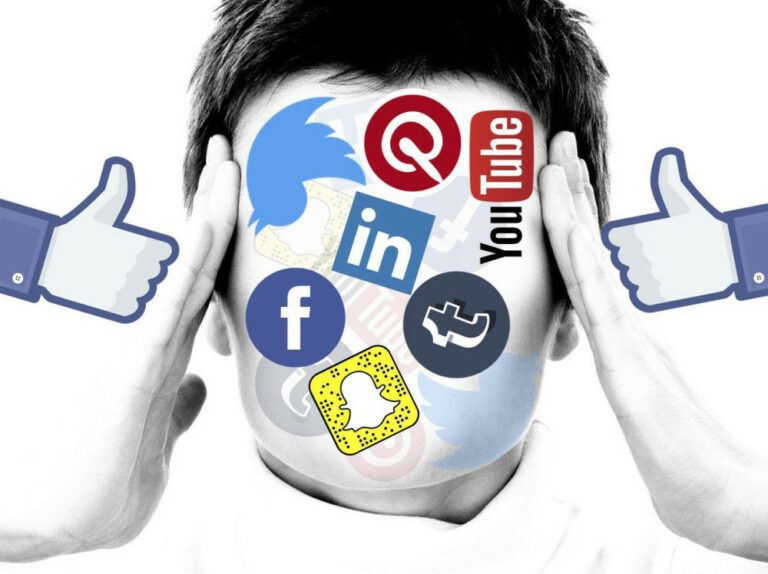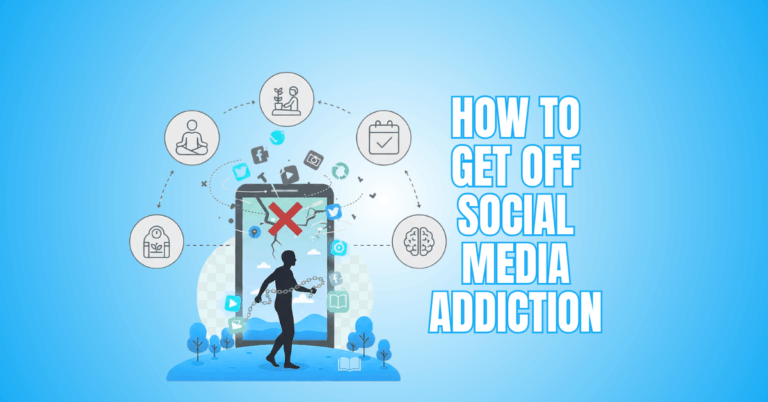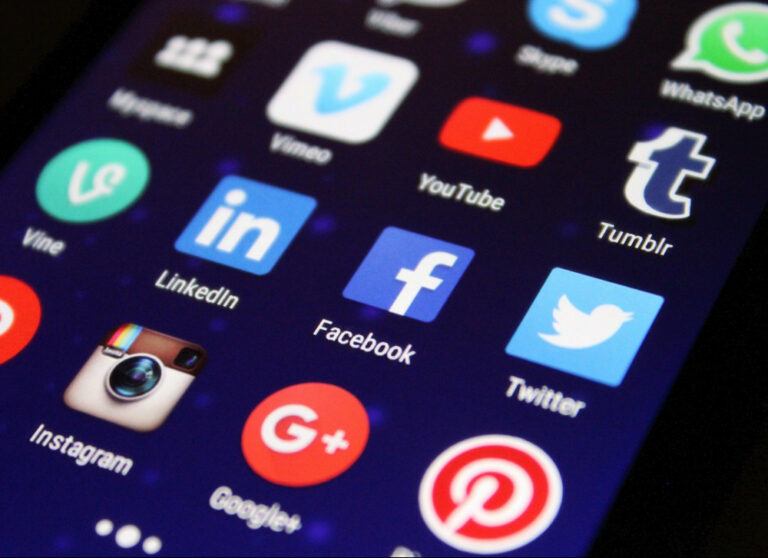Teens And Social Media Addictions
Social media is everywhere. It lives on our phones, on our laptops, and honestly, in our minds. And if you live with a teenager, you know this already.
Teens and social media addictions are becoming increasingly common, affecting their focus, sleep, and real-world relationships if left unchecked. But here’s the big question we need to ask as parents, teachers, and caring adults:
Is social media becoming an addiction for teens? Let’s dive deep into what’s happening, why it matters, and how we can help teenagers build a healthier digital life.
Why Social Media Is So Powerful For Teens
Social media addiction is a compulsive and constant need to check, scroll, and stay connected on platforms like Instagram, TikTok, Snapchat, and YouTube. It goes beyond just enjoying social apps — it’s when using them feels impossible to control.
Teens and adults may wake up and reach for their phones first thing, scroll during meals, lose track of time, or feel anxious when they can’t be online. This addiction happens because social media is designed to be rewarding.
Likes, comments, and notifications trigger dopamine — the brain’s “feel-good” chemical — making us crave more. Over time, that craving turns into a habit, and the habit becomes dependence. But it’s not just about screens.
Social media addiction affects mood, sleep, confidence, and real-life relationships. People may compare themselves to others, feel pressure to be perfect, or struggle to focus without checking their feeds.
In simple terms, social media addiction is when the digital world starts to matter more than real life — and breaking that cycle requires awareness, balance, and healthier habits.
Why Are Teens So Vulnerable?
Because their brains are still developing, teens are particularly susceptible to social media addiction. The teenage brain craves excitement, approval, and connection, and social media delivers all three instantly.
Likes, comments, and followers act like digital rewards, triggering dopamine — the same feel-good chemical released during eating, winning, or even risk-taking.
Teens naturally seek identity, validation, and belonging, so social media becomes a place to explore who they are and how others see them.
At the same time, teens face emotional ups and downs, social pressure, and fear of missing out. When they see friends hanging out without them or influencers showcasing perfect lives, they can feel left out or insecure.
Social media then becomes a comfort zone and escape — a place to feel included, entertained, and understood. Plus, teens love trends and fast-paced content, and algorithms know precisely how to keep feeding them more.
Put all this together, and social media can quickly shift from fun to addictive. It’s not weakness — it’s biology, emotions, and technology working together.
Signs Of Social Media Addiction In Teens
Social media addiction in teens often sneaks in quietly. What starts as harmless scrolling can slowly take over attention, emotions, and daily habits.
Below are key signs, each explained so you can recognize when everyday use turns into unhealthy dependence.
1. Constantly Checking Notifications Or Apps
Teens often feel the urge to check their phones every few minutes. Notifications act like tiny rewards. Likes, comments, or messages give them a quick dopamine rush.
Even during homework, meals, or conversations, their fingers reach for the phone. Over time, this becomes automatic, almost unconscious.
They may hide it or get defensive if questioned. Phones start feeling inseparable from daily life. This is not laziness—it’s the brain craving connection and excitement.
Recognizing this habit early helps parents set healthy boundaries and guide teens to regain control over their attention and daily routines.

2. Feeling Anxious or Restless When Offline
Many teens feel uneasy when they can’t access social media. They worry about missing messages, updates, or trending content.
This restlessness can show as irritability, fidgeting, or mood swings. Even short breaks may cause stress, making offline time uncomfortable.
Social media becomes a comfort zone they rely on for emotional regulation. This dependency signals that the online world has too much influence over their feelings.
Encouraging mindfulness, short breaks, and offline hobbies can help teens learn to cope without screens. Over time, they can rebuild emotional stability and regain confidence in offline interactions.
3. Losing Track of Time While Scrolling
Scrolling seems harmless, but it often stretches into hours. Teens plan to check a post for a minute but end up absorbed for long periods.
Social media sites are made to keep people interested indefinitely. As a result, schoolwork, responsibilities, and sleep schedules get disrupted.
Teens may overlook the time slipping away, which leads to missed deadlines or conflicts with parents. This habit can harm productivity and real-life relationships.
Teaching teens strategies like timers, scheduled online sessions, or digital detox periods can help them stay aware and balance their online and offline worlds.
4. Skipping Homework, Chores, Or Other Responsibilities
Social media can make daily responsibilities seem boring or unimportant. Teens may prioritize scrolling over homework, chores, or personal commitments.
This can create tension at home or school. Over time, it develops a habit of avoidance—turning to screens instead of facing tasks.
Teens often justify it by saying they need a “break,” but the breaks stretch into hours. When online rewards feel more immediate than real-world outcomes, responsibilities get ignored.
Parents can help by setting structured schedules, involving teens in planning, and encouraging accountability. Balanced routines teach that offline tasks are essential too, without removing digital freedom entirely.
5. Reduced Interest in Offline Hobbies Or Friends
When teens spend hours online, offline activities lose appeal. Sports, music, reading, or meeting friends in person may feel boring compared to the excitement of social media.
They may withdraw from real-world interactions, spending more time in virtual spaces. Over time, social skills, confidence, and creativity can suffer.
Teens may also feel isolated even when surrounded by peers. Encouraging hobbies, group activities, or family time helps them rediscover offline enjoyment.
The goal isn’t to eliminate screens but to balance life. When offline interests become meaningful, teens naturally rely less on social media for entertainment and fulfillment.

6. Staying Up Late Using Social Media
Teens and social media addictions often lead to late-night scrolling, which disrupts sleep and negatively impacts mood, focus, and overall well-being.
Late-night scrolling affects energy, focus, and mood the next day. Blue light from screens disrupts the brain’s natural sleep cycle. Teens may feel tired, irritable, or less motivated during school.
Over time, sleep deprivation can affect memory, learning, and emotional stability. Setting tech-free bedtime rules, charging phones outside bedrooms, or using apps to limit nighttime use can help.
Encouraging a relaxing nighttime routine—reading, journaling, or listening to calm music—helps teens wind down without screens, making sleep a natural and healthy priority.
7. Comparing Themselves To Others Online Frequently
Teens often measure themselves against others online. Filtered images, curated posts, and highlight reels create unrealistic standards. They compare looks, achievements, lifestyles, or popularity.
This constant comparison can lower self-esteem, trigger anxiety, and create feelings of inadequacy. Teens may feel pressure to match peers or influencers, leading to stress or obsession with image.
Parents and mentors can encourage open discussions about reality versus social media illusions. Highlighting self-worth beyond online validation helps teens focus on their strengths, individuality, and growth.
Teaching media literacy equips them to navigate social platforms without letting comparison dictate their emotions or self-image.
8. Getting Upset Or Irritated When Asked To Unplug
Teens may react defensively if asked to reduce screen time. They might argue, sulk, or hide their devices. This reaction shows emotional attachment and reliance on social media for comfort, entertainment, and social connection.
Resistance isn’t rebellion—it’s a sign of digital dependence. Approaching the conversation with empathy is key. Instead of strict bans, offer compromise: scheduled screen breaks, tech-free zones, or shared offline activities.
Framing limits as tools for balance rather than punishment helps teens cooperate. Over time, they learn to manage their online time voluntarily, reducing stress and promoting healthier habits without conflict.
9. Excessive Posting Or Seeking Validation Through Likes And Comments
Teens may post constantly, seeking likes, comments, or shares for validation. Online recognition can feel more important than real-life accomplishments.
This pattern creates emotional dependence: their mood rises or falls based on engagement. Teens may overanalyze posts, delete content that gets few likes, or compare interactions with peers.
Parents can guide teens toward self-validation: celebrating personal achievements, encouraging offline feedback, and focusing on intrinsic satisfaction.
Understanding the difference between connection and approval helps teens develop resilience. Social media becomes a tool for expression rather than a mood regulator or source of constant external validation.

10. Mood Swings Linked To Online Interactions
Social media can heavily influence a teen’s emotions. Positive reactions may create excitement, while negative comments, criticism, or low engagement can trigger sadness, anger, or anxiety.
Teens may overreact to online drama or misunderstandings. Emotional ups and downs become tied to the digital world rather than reality. This dependency can strain relationships, focus, and mental health.
Teaching emotional awareness is essential. Encourage teens to pause before reacting, reflect on feelings, and engage offline to regain perspective.
When teens learn to separate online experiences from their self-worth, they gain stability and reduce the addictive grip of social media.
Innovative Tools To Break the Addiction Cycle
Teens and social media addictions can be managed effectively with the right tools and strategies that promote balance and mindful usage. These solutions don’t ban social media altogether—they guide healthier, balanced usage :
1. App Time Limiters (iOS Screen Time, Digital Wellbeing, Stay Focused)
These tools help teens monitor and limit their social media use. They track daily screen time, set app-specific limits, and even block apps after reaching a set quota.
Teens can see how much time they spend online, making them more aware of their habits. Parents can also use these tools to encourage balanced usage without constant supervision.
By setting realistic daily limits, teens can enjoy social media without letting it take over their day. Time limiters turn unconscious scrolling into intentional, mindful use, helping teens regain focus and control over their digital habits.
Wealthy Affiliate – Mini Review (2025)
If you’ve ever thought about turning your blog, passion, or niche into an online business,
Wealthy Affiliate (WA) is one of the most beginner-friendly platforms I’ve used.
It combines step-by-step training, website hosting, SEO research tools,
and an active community all in one place.
What I like most: you can start free (no credit card needed),
explore lessons, test the tools, and connect with other entrepreneurs
before upgrading. WA isn’t a “get rich quick” scheme — it’s a platform where success comes
from consistent effort and applying what you learn.
2. Focus & Productivity Apps (Forest, Focus To-Do, Freedom)
Focus apps encourage offline engagement and minimize distractions. Forest, for example, rewards teens for staying off their phones by growing a virtual tree.
Freedom blocks social media or other apps during set times, allowing teens to concentrate on homework or hobbies. Focus To-Do combines timers with task management, helping them structure their day.
These apps make breaks productive and motivate teens to stay engaged offline. They transform self-control from a chore into a rewarding challenge, teaching teens how to balance online and real-world responsibilities without feeling restricted or frustrated.

3. Notification Management
Turning off non-essential notifications reduces the constant urge to check phones. Teens no longer feel interrupted every few minutes by pings or alerts. Instead, notifications become intentional, not compulsive.
Together, parents and teenagers may decide whether alerts—such as family texts or important school apps—are essential. The rest can be silenced. Over time, this reduces anxiety, restlessness, and the “fear of missing out.”
It also creates a calmer, more focused environment, where teens can engage with social media on their terms instead of reacting impulsively to every notification.
4. Tech-Free Zones (Bedrooms, Dining Tables, Study Areas)
Phone-free zones can help reduce teens' and social media addictions by promoting offline focus, authentic connections, and healthier daily routines.
Bedrooms, dining tables, or study areas can be designated as no-screen spaces. Teens learn to enjoy meals, family time, or study without digital distractions. This simple boundary reinforces that life doesn’t always need a phone nearby.
It also improves sleep, attention, and social skills. Over time, teens start associating these zones with relaxation, learning, and genuine connection.
Tech-free areas don’t punish teens—they help them reclaim parts of daily life that often get overshadowed by endless scrolling.
5. Scheduled Social Media Use
Instead of random, impulsive scrolling, teens can allocate specific hours for social media. Scheduled usage encourages balance, helps prevent excessive screen time, and teaches self-discipline.
Apps or phone settings can support this by locking social media outside allowed hours. This approach removes guilt and frustration because teens know when they can enjoy online time.
Scheduled use also encourages offline activities during the day, like homework, hobbies, or exercise. It transforms social media from an all-consuming habit into a controlled, enjoyable activity that fits naturally into a teen’s daily routine.

6. Offline Hobbies (Sports, Art, Music, Reading)
Encouraging hobbies helps teens and social media addictions lose their grip by providing real-world engagement, accomplishment, and fulfillment beyond the digital world.
Sports, art, music, or reading provide stimulation, accomplishment, and social connection in the real world. Teens can feel the satisfaction of progress and creativity firsthand, not through likes or comments.
Hobbies also reduce stress, improve focus, and build confidence. When teens find joy offline, social media loses its grip. Parents can help by introducing new activities, joining hobbies together, or supporting teen-led projects.
Offline engagement creates balance and teaches that fulfillment doesn’t always come from digital approval—it comes from skills, relationships, and real-life experiences.
7. Mindfulness & Meditation Apps (Headspace, Calm, Insight Timer)
Mindfulness apps help teens manage urges, anxiety, and stress linked to social media. Short guided sessions teach breathing techniques, focus, and emotional awareness.
Teens can pause and reflect instead of reaching for their phones automatically. Over time, mindfulness strengthens self-control and emotional regulation. Apps like Headspace, Calm, or Insight Timer make it engaging and accessible.
Even five minutes a day can reduce restlessness, improve sleep, and help teens respond calmly to notifications or social media pressure.
Mindfulness encourages intentional use rather than impulsive scrolling, assisting teens to feel in control of their emotions and habits.
8. Parental Control Tools (Qustodio, Bark, Family Link)
Parental control apps allow monitoring without constant confrontation. They can track screen time, block harmful content, and set daily limits.
Bark, for instance, can alert parents to concerning messages or behaviours. Family Link guides younger teens to develop responsible online habits.
These tools work best when paired with conversation and trust, not as strict punishment. They provide structure while allowing teens some autonomy.
Over time, teens learn to self-regulate and make healthier digital choices. Parental tools act as a safety net, helping families navigate social media use while fostering independence and balance.

9. Digital Detox Challenges (24-Hour Screen-Free Periods or Weekend Detox)
Short digital detoxes create awareness of social media reliance. Teens experience life without constant notifications and discover offline joys.
Challenges can be fun—like a family weekend without screens or a 24-hour social media break. These periods highlight habits, reduce stress, and reinforce control over device use.
Teens can journal, engage in hobbies, or spend time outdoors. Regular detoxes help reset the brain’s reward system, making real-life experiences more satisfying.
Over time, detoxes train teens to enjoy both online and offline life consciously, reducing addictive patterns without forcing permanent separation from technology.
10. Accountability Partners (Friends or Family)
Having someone to encourage balanced usage can be very effective. Friends, siblings, or parents can check in on social media habits, celebrate progress, and gently remind teens when limits are reached.
Accountability turns self-discipline into a shared effort. Teens feel supported rather than judged, reducing resistance. It also encourages positive discussion about digital habits. Peer accountability works because teens naturally respond to social influence.
Over time, this helps build consistent, healthy routines, reinforces offline engagement, and decreases dependence on notifications and constant scrolling. Supportive guidance is often more effective than strict rules or punishment.
Conclusion
Although social media is an effective tool, it may quickly become addictive for teenagers. Addressing teens and social media addictions with awareness and guidance helps them develop self-control and thrive both online and offline.
In order to promote digital responsibility, parents and teachers are essential. With patience and consistent effort, teens can develop self-control, maintain real-world connections, and thrive both online and offline, turning social media into a positive, enriching experience.
I trust you enjoyed this article on Teens and Social Media Addictions. Please stay tuned for more insightful blogs on affiliate marketing, online business, and working from anywhere in the world.
Take care!
— JeannetteZ
💬 Your Opinion Is Important To Me
Do you have thoughts, ideas, or questions? I’d love to hear from you. Please leave your comments below or email me directly at Jeannette@WorkFromAnywhereInTheWorld.com.
📚 More Work From Anywhere Reads
🚀 Ready to Build a Business You Can Run from Home
Or from Anywhere in the World?
Imagine creating income on your terms — from home, a cozy café, or wherever life takes you.
With the right tools, training, and community support, it’s entirely possible.
Start your own online business for free — no credit card needed.
Disclosure
This post may contain affiliate links. As an Amazon Associate and participant in other affiliate programs, I earn from qualifying purchases at no extra cost to you. Please read my full affiliate disclosure.


